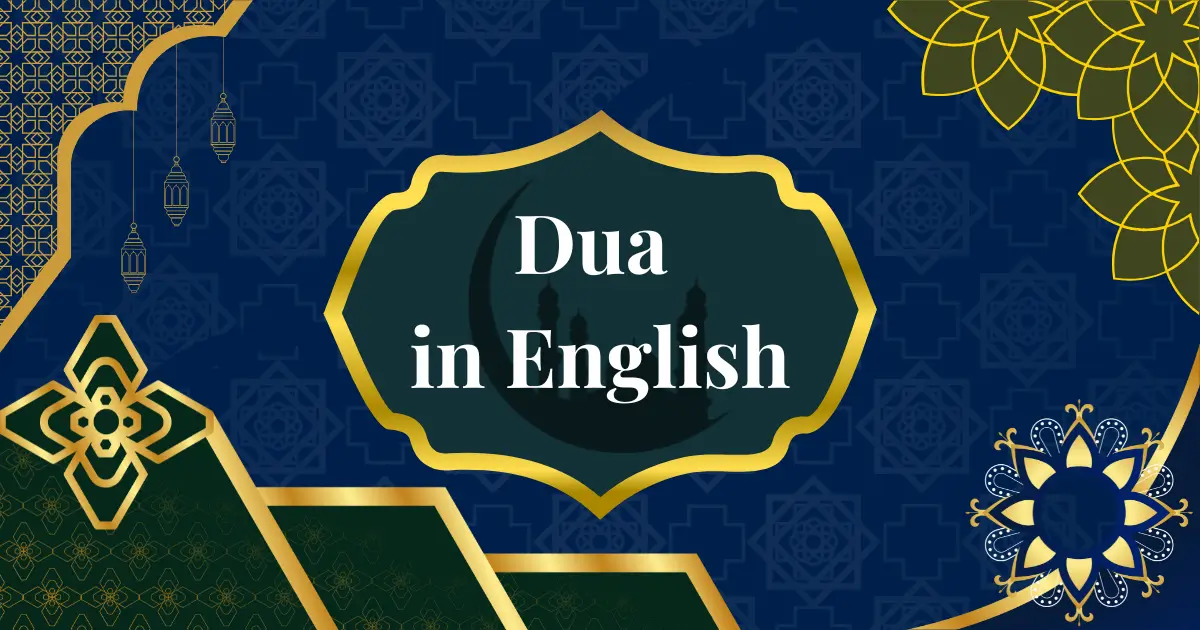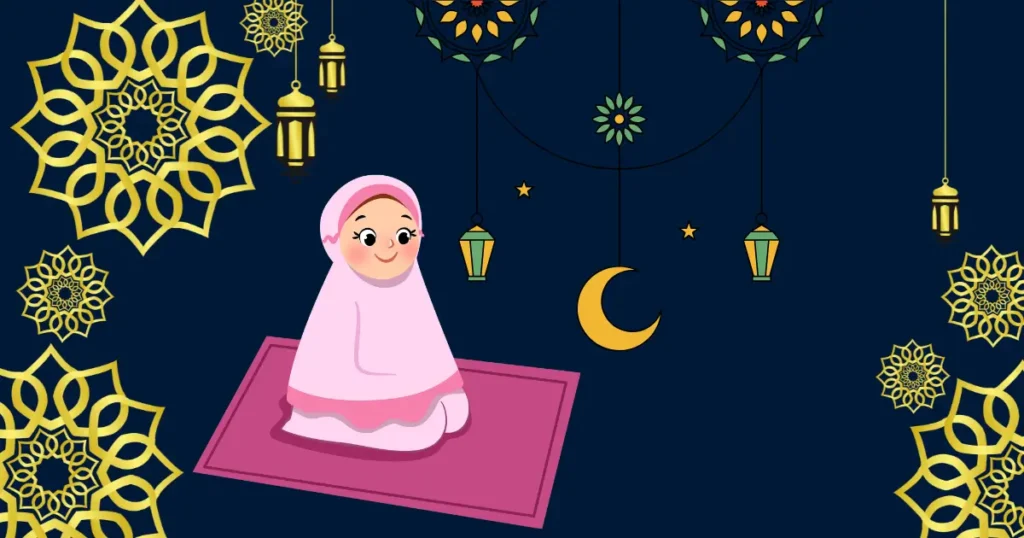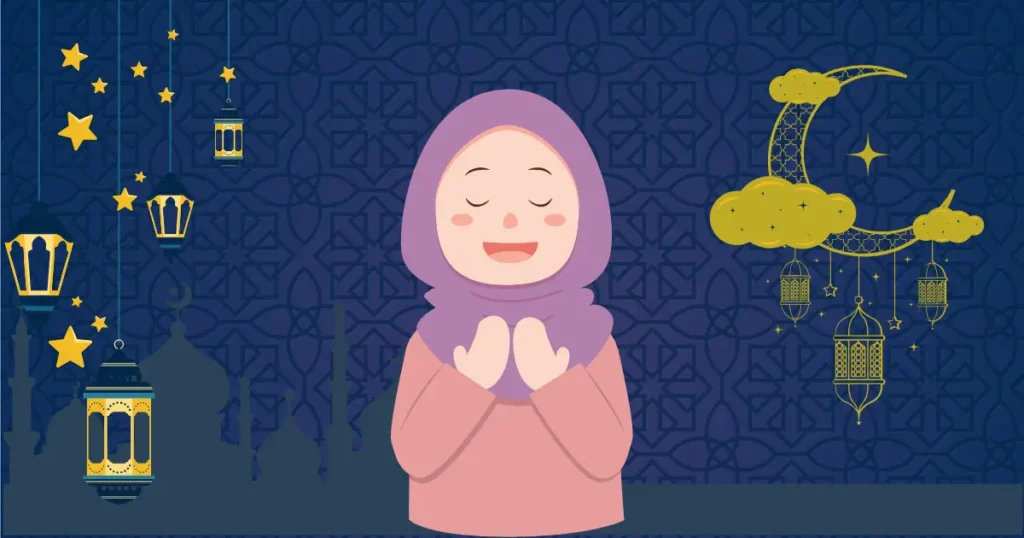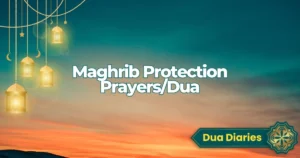
Dua in English: Strengthening Your Connection with Allah
رہنمائی فہرست Guidance Index
Making dua (supplication) is a powerful and intimate way for Muslims to communicate with Allah (SWT). It is an act of worship that goes beyond mere words; it involves sincerity of the heart, humility, and total reliance on the Creator. In this long-form article, we will explore various duas in English, discuss their importance and etiquette, and provide practical tips on integrating these supplications into your daily life. By the end, you will have a comprehensive collection of Islamic dua in English that can guide you through everyday situations, worship, challenges, and special occasions.
The Importance of Dua: A Direct Line to Allah
In Islam, dua serves as a direct channel to Allah, allowing believers to seek guidance, express gratitude, and request help with life’s challenges. When we call upon Allah sincerely, we acknowledge our dependence on Him and strengthen our bond with the Almighty. The Quran encourages believers to turn to Allah in supplication:
“And your Lord says, ‘Call upon Me; I will respond to you.’”
(Quran 40:60)
This verse highlights the boundless mercy of Allah and His willingness to answer those who reach out to Him. When we engage in dua regularly, we are reminded of our true purpose—to serve and please Allah, the source of all blessings.

Etiquette of Making Dua
Before delving into specific daily duas in Islam, it is crucial to understand the proper etiquette that can make your supplications more meaningful and impactful:
- Begin with Bismillah
- Start your dua by saying, “Bismillahir-Rahmanir-Raheem” (In the name of Allah, the Most Gracious, the Most Merciful). This signifies that you are calling upon Allah for guidance and blessings.
- Praise Allah
- Glorify Allah by praising Him with words like, “Alhamdulillah” (All praise is due to Allah) and recognizing His attributes. This sets a reverent tone for your dua.
- Send Blessings Upon the Prophet Muhammad (PBUH)
- Say, “Allahumma salli ‘ala Muhammad” (O Allah, send peace and blessings upon Muhammad). This is a recommended practice before and after making any dua.
- Face the Qiblah if Possible
- Turning towards the Ka’bah in Makkah shows respect and dedication, although dua can be made in any direction.
- Raise Your Hands
- Lifting your hands towards the sky symbolizes humility and submission to Allah.
- Be Sincere and Patient
- Make dua from the depths of your heart, truly believing that Allah hears you. Have patience if the answer is delayed; trust in Allah’s perfect timing and wisdom.
- End with Praise and Salawat
- Conclude your supplication by praising Allah again and sending blessings upon the Prophet (PBUH).
By following these etiquettes, you invite blessings and magnify the sincerity of your requests.

Daily Duas in English
Below is a collection of daily duas that Muslims can recite for various everyday activities. Each dua is provided in Arabic, along with its transliteration, English translation, and a brief explanation.
1. Dua for Waking Up
Arabic:
اَلْحَمْدُ لِلّٰهِ الَّذِي أَحْيَانَا بَعْدَ مَا أَمَاتَنَا وَإِلَيْهِ النُّشُورُ
Transliteration:
Alhamdu lillahil-ladhi ahyaanaa ba’da maa amaatanaa wa ilaihin-nushoor
English Translation:
“All praise is for Allah who gave us life after causing us to die (sleep), and to Him is the return.”
Explanation:
Recited upon waking, this dua acknowledges that our sleep is a state close to death and expresses gratitude to Allah for granting us life and another opportunity to worship Him.
2. Dua for Sleeping
Arabic:
بِاسْمِكَ اللَّهُمَّ أَمُوتُ وَأَحْيَا
Transliteration:
Bismika Allahumma amootu wa ahyaa
English Translation:
“In Your Name, O Allah, I live and die.”
Explanation:
By mentioning Allah’s name before sleeping, we place our trust in Him, acknowledging that our lives and our return to consciousness are both in His hands.
3. Dua Before Eating
Arabic:
بِسْمِ اللَّهِ وَعَلَى بَرَكَةِ اللَّهِ
Transliteration:
Bismillah wa ‘ala barakatillah
English Translation:
“In the name of Allah and with the blessings of Allah.”
Explanation:
Reciting this short supplication before meals reminds us that our sustenance comes from Allah alone, and we seek His blessings in what we consume.
4. Dua After Eating
Arabic:
الْحَمْدُ لِلَّـهِ الَّذِي أَطْعَمَنَا وَسَقَانَا وَجَعَلَنَا مُسْلِمِينَ
Transliteration:
Alhamdu lillahil-ladhi at’amanaa wa saqaanaa wa ja’alanaa Muslimeen
English Translation:
“All praise is for Allah who provided us with food and drink and made us Muslims.”
Explanation:
Expressing gratitude after eating instills thankfulness for the provisions Allah grants us, especially the blessing of being among the followers of Islam.
5. Dua When Entering the House
Arabic:
بِسْمِ اللَّهِ وَلَجْنَا، وَبِسْمِ اللَّهِ خَرَجْنَا، وَعَلَى رَبِّنَا تَوَكَّلْنَا
Transliteration:
Bismillahi walajnaa, wa bismillahi kharajnaa, wa ‘ala Rabbinaa tawakkalnaa
English Translation:
“In the name of Allah we enter and in the name of Allah we leave, and upon our Lord we depend.”
Explanation:
By mentioning Allah’s name upon entering, we seek His protection and blessings for our home, placing our trust in Him for safety and peace.
6. Dua When Leaving the House
Arabic:
بِسْمِ اللَّهِ، تَوَكَّلْتُ عَلَى اللَّهِ، وَلَا حَوْلَ وَلَا قُوَّةَ إِلَّا بِاللَّهِ
Transliteration:
Bismillah, tawakkaltu ‘alallah, wa la hawla wa la quwwata illa billah
English Translation:
“In the name of Allah, I rely on Allah, and there is no might or power except with Allah.”
Explanation:
This dua reflects our dependence on Allah when stepping out into the world, acknowledging that all power and ability come from Him.
7. Dua for Wearing New Clothes
Arabic:
اللَّهُمَّ لَكَ الْحَمْدُ أَنْتَ كَسَوْتَنِيهِ، أَسْأَلُكَ خَيْرَهُ وَخَيْرَ مَا صُنِعَ لَهُ، وَأَعُوذُ بِكَ مِنْ شَرِّهِ وَشَرِّ مَا صُنِعَ لَهُ
Transliteration:
Allahumma lakal-hamdu Anta kasawtaneeh, as’aluka khayrahu wa khayra maa suni’a lahu, wa a’oodhu bika min sharrihi wa sharri maa suni’a lahu
English Translation:
“O Allah, praise is to You; You have clothed me with it. I ask You for its goodness and the goodness for which it was made, and I seek refuge in You from its evil and the evil for which it was made.”
Explanation:
This dua expresses gratitude for the blessing of clothing and seeks protection from any harm or negative influences associated with it.
Duas for Worship
1. Dua Before Starting Prayer
Arabic:
اللَّهُمَّ اجْعَلْ قَلْبِي خَاشِعًا فِي صَلَاتِي
Transliteration:
Allahumma ij’al qalbee khaashi’an fee salaatee
English Translation:
“O Allah, make my heart humble in my prayer.”
Explanation:
This short supplication helps cultivate focus and sincerity before standing in front of Allah in prayer.
2. Dua After Prayer (General)
Arabic:
اللَّهُمَّ أَنْتَ السَّلَامُ وَمِنْكَ السَّلَامُ، تَبَارَكْتَ يَا ذَا الْجَلَالِ وَالْإِكْرَامِ
Transliteration:
Allahumma Antas-Salaam wa minkas-Salaam, tabaarakta yaa Dhal-Jalaali wal-Ikraam
English Translation:
“O Allah, You are Peace and from You comes peace. Blessed are You, O Owner of Majesty and Honor.”
Explanation:
Often recited after concluding prayer, this dua glorifies Allah as the source of peace and blessings, and recognizes His supreme majesty.
3. Dua During Ramadan
Arabic:
اللَّهُمَّ إِنَّكَ عَفُوٌّ كَرِيمٌ تُحِبُّ الْعَفْوَ فَاعْفُ عَنِّي
Transliteration:
Allahumma innaka ‘Afuwwun Kareemun tuhibbul-‘afwa fa’fu ‘annee
English Translation:
“O Allah, You are Most Forgiving, and You love forgiveness; so forgive me.”
Explanation:
A frequently recited dua during the last ten nights of Ramadan, seeking Allah’s forgiveness and mercy.
Duas for Protection
1. From Evil Eye and Shaytan
Arabic:
أَعُوذُ بِكَلِمَاتِ اللَّهِ التَّامَّاتِ مِنْ شَرِّ مَا خَلَقَ
Transliteration:
A’oodhu bikalimaatillahit-taammaati min sharri maa khalaq
English Translation:
“I seek refuge in the perfect words of Allah from the evil of what He has created.”
Explanation:
This dua acts as a shield from harm, negative influences, and the whisperings of Shaytan.
2. From Calamities and Harm
Arabic:
اللَّهُمَّ إِنَّا نَجْعَلُكَ فِي نُحُورِهِمْ وَنَعُوذُ بِكَ مِنْ شُرُورِهِمْ
Transliteration:
Allahumma inna naj’aluka fee nuhoorihim wa na’oodhu bika min shuroorihim
English Translation:
“O Allah, we place You before them and seek refuge in You from their evil.”
Explanation:
Recited when fearing harm from an enemy or dangerous situation, asking Allah to protect us from potential threats.
Duas for Health and Healing
1. For Recovery from Illness
Arabic:
اللَّهُمَّ رَبَّ النَّاسِ، أَذْهِبِ الْبَأْسَ، اشْفِ أَنْتَ الشَّافِي، لَا شِفَاءَ إِلَّا شِفَاؤُكَ، شِفَاءً لَا يُغَادِرُ سَقَمًا
Transliteration:
Allahumma Rabbannas, adhhib al-ba’s, ishfi anta ash-Shaafi, laa shifaa’a illa shifaa’uk, shifaa’an laa yughaadiru saqamaa
English Translation:
“O Allah, Lord of humankind, remove the harm and cure (him/her). You are the Healer; there is no cure except Your cure, a cure that leaves no illness behind.”
Explanation:
A heartfelt prayer recognizing Allah as the ultimate Healer and asking Him to grant a complete and lasting recovery.
2. For Relief from Distress
Arabic:
لَا إِلَهَ إِلَّا اللَّهُ الْعَظِيمُ الْحَلِيمُ، لَا إِلَهَ إِلَّا اللَّهُ رَبُّ الْعَرْشِ الْعَظِيمِ
Transliteration:
La ilaha illAllahul ‘Adheemul Haleem, la ilaha illAllah Rabbul ‘arshil ‘adheem
English Translation:
“There is no deity worthy of worship except Allah, the Great, the Forbearing. There is no deity worthy of worship except Allah, the Lord of the Mighty Throne.”
Explanation:
Reciting this dua in times of anxiety or stress reminds us of Allah’s greatness and might, bringing comfort and assurance.
Duas for Success
1. For Exams or Studies
Arabic:
رَبِّ زِدْنِي عِلْمًا
Transliteration:
Rabbi zidnee ‘ilmaa
English Translation:
“My Lord, increase me in knowledge.”
Explanation:
A concise but powerful request for Allah to enhance one’s knowledge, commonly recited by students and anyone seeking growth in understanding.
2. For Job and Business
Arabic:
اللَّهُمَّ ارْزُقْنِي رِزْقًا حَلَالًا طَيِّبًا
Transliteration:
Allahumma arzuqnee rizqan halaalan tayyiban
English Translation:
“O Allah, provide me with lawful and pure sustenance.”
Explanation:
This dua emphasizes the importance of seeking halal sources of income and blessings in one’s work or business endeavors.
Duas for Family and Children
1. For Newborn Babies
Arabic:
اللَّهُمَّ اجْعَلْهُ صَالِحًا وَبَارِكْ لَهُ فِي حَيَاتِهِ
Transliteration:
Allahumma ij’alhu saalihan wa baarik lahu fee hayaatihi
English Translation:
“O Allah, make this child righteous and bless him in his life.”
Explanation:
Welcoming a newborn with this supplication invokes Allah’s blessings and guidance for the child’s future.
2. For Parents
Arabic:
رَبِّ ارْحَمْهُمَا كَمَا رَبَّيَانِي صَغِيرًا
Transliteration:
Rabbi irhamhumaa kamaa rabbayaani sagheeraa
English Translation:
“My Lord, have mercy upon them (my parents) as they brought me up when I was small.”
Explanation:
A heartfelt plea for Allah’s mercy on one’s parents, recognizing their sacrifices and love.
3. For Marital Harmony
Arabic:
رَبَّنَا هَبْ لَنَا مِنْ أَزْوَاجِنَا وَذُرِّيَّاتِنَا قُرَّةَ أَعْيُنٍ
Transliteration:
Rabbanaa hab lanaa min azwaajinaa wa dhurriyyaatinaa qurrata a’yunin
English Translation:
“Our Lord, grant us from among our spouses and offspring comfort to our eyes.”
Explanation:
Asking Allah for a peaceful, loving relationship and righteous family life is a vital component of maintaining harmony in the home.
Duas for Forgiveness and Repentance
1. Astaghfirullah
Arabic:
أَسْتَغْفِرُ اللَّهَ
Transliteration:
Astaghfirullah
English Translation:
“I seek forgiveness from Allah.”
Explanation:
A concise plea for Allah’s pardon, which can be recited any time to purify the heart and wipe away minor sins.
2. Sayyidul Istighfar
Arabic:
اللَّهُمَّ أَنْتَ رَبِّي لَا إِلَٰهَ إِلَّا أَنْتَ، خَلَقْتَنِي وَأَنَا عَبْدُكَ
وَأَنَا عَلَىٰ عَهْدِكَ وَوَعْدِكَ مَا اسْتَطَعْتُ،
أَعُوذُ بِكَ مِنْ شَرِّ مَا صَنَعْتُ،
أَبُوءُ لَكَ بِنِعْمَتِكَ عَلَيَّ،
وَأَبُوءُ بِذَنْبِي،
فَاغْفِرْ لِي فَإِنَّهُ لَا يَغْفِرُ الذُّنُوبَ إِلَّا أَنْتَ.
Transliteration:
Allahumma anta Rabbee, la ilaha illa Anta, khalaqtanee wa ana ‘abduka,
wa ana ‘ala ‘ahdika wa wa’dika mastata’tu,
a’oodhu bika min sharri ma sana’tu,
aboo’u laka bini’matika ‘alayya,
wa aboo’u bithanbee,
faghfir lee fa’innahu la yaghfirudh-dhunooba illa Anta.
English Translation:
“O Allah, You are my Lord; none has the right to be worshipped but You. You created me, and I am Your servant,
and I abide by Your covenant and promise as best as I can.
I seek refuge in You from the evil of what I have done.
I acknowledge Your favor upon me,
and I acknowledge my sin,
so forgive me, for verily none can forgive sin except You.”
Explanation:
Known as the “master supplication for forgiveness,” reciting this dua regularly helps in attaining Allah’s pardon and mercy for one’s sins.
Duas for Special Occasions
1. For Hajj
Arabic:
رَبَّنَا تَقَبَّلْ مِنَّا إِنَّكَ أَنتَ السَّمِيعُ العَلِيمُ
Transliteration:
Rabbanaa taqabbal minnaa innaka Antas-Samee’ul ‘Aleem
English Translation:
“Our Lord, accept [this] from us. Indeed, You are the All-Hearing, the All-Knowing.”
Explanation:
Frequently recited during Hajj and Umrah rituals, asking Allah to accept the efforts and worship of the pilgrims.
2. For Eid
Arabic:
اللَّهُمَّ اجْعَلْنَا مِنَ الْمُتَقَبِّلِينَ
Transliteration:
Allahumma ij’alnaa minal-mutaqabbileen
English Translation:
“O Allah, make us among those whose deeds are accepted.”
Explanation:
A simple yet profound plea to Allah for accepting all good deeds performed during the month of Ramadan or during Eid celebrations.
3. For Marriage
Arabic:
بَارَكَ اللَّهُ لَكِ، وَبَارَكَ عَلَيْكِ، وَجَمَعَ بَيْنَكُمَا فِي خَيْرٍ
Transliteration:
Baarakallahu lak, wa baaraka ‘alayk, wa jama’a baynakumaa fee khayr
English Translation:
“May Allah bless for you (your spouse), and bless you, and unite you both in goodness.”
Explanation:
Often recited at weddings, this dua seeks Allah’s blessings for the couple’s union and a prosperous future together.
4. For Travel
Arabic:
سُبْحَانَ الَّذِي سَخَّرَ لَنَا هَٰذَا وَمَا كُنَّا لَهُ مُقْرِنِينَ
وَإِنَّا إِلَىٰ رَبِّنَا لَمُنقَلِبُونَ
Transliteration:
Subhanal-ladhee sakhkhara lanaa haadha wa maa kunnaa lahu muqrineen
wa innaa ila Rabbinaa lamunqaliboon
English Translation:
“Glory be to Him who has brought this (vehicle) under our control—though we were unable to control it. Indeed, we will surely return to our Lord.”
Explanation:
A reminder of Allah’s power over all things and our ultimate return to Him, commonly recited before beginning a journey.
Practical Tips for Incorporating Duas into Daily Life
- Memorize Gradually
- Start with short Islamic dua in English and gradually move on to longer ones. Consistent repetition helps embed them in memory.
- Create a Routine
- Choose specific times for daily supplications—upon waking, before sleeping, or after prayers—so that it becomes a natural part of your schedule.
- Reflect on the Meaning
- Understand the translations and significance of the duas you recite. This deepens your connection to the words and fosters sincerity.
- Use Technology Wisely
- Set reminders on your phone or use apps designed for duas to help you stay consistent.
- Teach Family and Friends
- Recite dua together before meals, bedtime, or any family gathering. Sharing duas promotes a spiritual atmosphere at home.
- Stay Patient and Trust in Allah
- Recognize that every dua is answered in a way that is best for you, even if the outcome is not what you initially envisioned.
The Power of Dua and Trusting Allah’s Timing
It is essential to remember that Allah’s answers to our duas are not always immediate or in the form we expect. Sometimes, He withholds what we request because there is wisdom in delaying or redirecting us toward a greater benefit. Believers should remain steadfast and trust in Allah’s superior knowledge and timing.
“Perhaps you hate a thing while it is good for you; and perhaps you love a thing while it is bad for you. And Allah knows, while you know not.”
(Quran 2:216)
This verse serves as a powerful reminder that our perspective is limited, while Allah’s wisdom is boundless.
Conclusion: Make Dua a Regular Part of Your Life
Incorporating dua in English into your routine is a transformative practice that aligns your heart with the remembrance of Allah. Whether you are seeking forgiveness, guidance, success, or simply expressing gratitude, daily duas in Islam keep you grounded in faith. By using these powerful duas for success, protection, health, and overall well-being, you open doors of barakah (blessings) in every aspect of life.
Finally, remember that dua is not just a series of words—it is a profound act of worship that reflects your trust and dependence on the Divine. Make dua for all occasions, remain persistent, and believe in Allah’s mercy. As you consistently turn to Him in supplication, you will find your relationship with Allah growing stronger, your faith more resilient, and your life more blessed.
May Allah accept our duas, forgive our shortcomings, and guide us on the straight path. Ameen.



